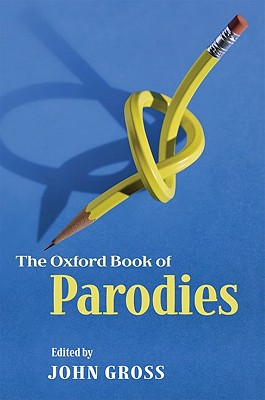Review by Peter King
Published by Oxford University Press
Laugh-out-loud parody requires an instantly recognizable original – and the funniest examples in this teeming collection are the ones that do not require an explanation.
The parodist himself may be virtually unknown to most readers, but he needs to play with styles that are as familiar as the backs of our hands. Stanley J.Sharpless catches just the right note when he gets Dylan Thomas to re-write Pride and Prejudice: ‘It is night in the smug snug-as-a-bug-in-a-rug household of Mr and Mrs Dai Bennet and their simpering daughters – five breast-bobbing man-hungry tittivators, innocent as ice-cream, panting for balls and matrimony.’
Some writers, in their weaker moments, make themselves obvious targets. Wordsworth comes in for his fair share of teasing, and Percy French’s description of lost sheep captures the quintessence of the great man at his worst: ‘“They all had heads in front,” she said, “And all had tails behind!”’
One of the more up-to-date examples is Craig Brown’s take-off of a conference speech by Tony Blair: “But, you know, speaking totally off the cuff for a moment, I want to tell you something from the bottom. End page 10. Start page 11. Of my heart.”
Stylists such as Raymond Chandler and Hemingway lend themselves to this treatment because we relish their achievement – and we honour them as we are reminded that imitation is the sincerest form of flattery. But if the prose is turgid in the first place, the best a mock version can achieve is to match it – and where is the pleasure there?
The writers who bob along in the wake of literary giants try to snatch five minutes of borrowed fame with mockery or admiration – but the last laugh remains with the originators, whose names will live on when their imitators have been consigned to oblivion.



